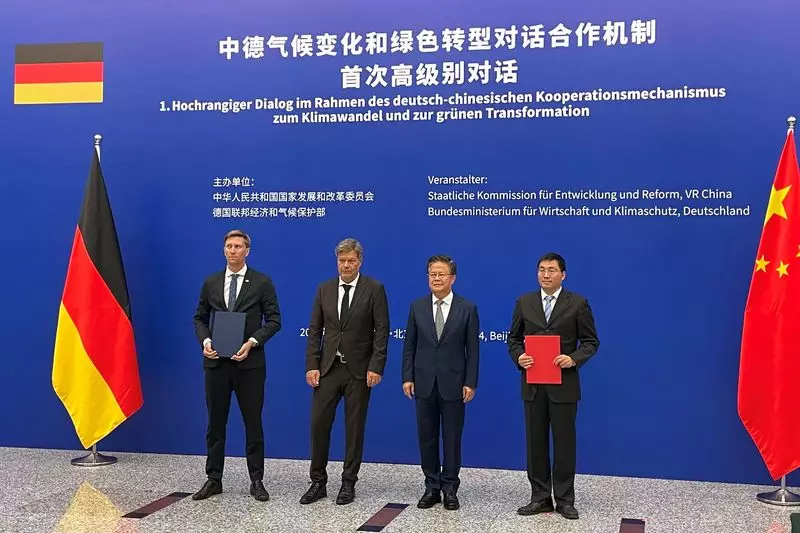The recent agreement between China and the European Union to commence talks regarding the imposition of tariffs on Chinese-made electric vehicles (EVs) imported into the European market represents a positive first step in resolving trade disputes. Germany’s Economy Minister, Robert Habeck, expressed optimism about the concrete negotiations on tariffs with China after being informed by EU commissioner Valdis Dombrovskis. This signifies a significant development as concrete negotiation timetables were unattainable in recent weeks.
Habeck emphasized the importance of dialogue between the EU and China on tariff issues before the provisional duties come into full effect in November. He stressed the need for open markets but reiterated the necessity of a level playing field, denouncing proven subsidies intended to bolster companies’ export advantages. The EU’s proactive approach in initiating discussions with China showcases a commitment to fair trade practices and market transparency.
The ongoing tensions between Beijing and Berlin, particularly regarding China’s support for Russia in the Ukraine conflict, have added complexity to the trade discussions. Habeck highlighted the increase in Chinese trade with Russia and warned Chinese officials against circumventing sanctions imposed on Russia. The minister’s stance on preventing technical goods produced in Europe from being utilized in conflicts underscores the need for ethical business practices and adherence to international regulations.
The trade disputes between China and the EU underscore broader geopolitical considerations and ethical dilemmas in international commerce. Habeck’s emphasis on addressing economic imbalances and preventing unfair practices reflects a commitment to upholding global trade standards and fostering mutually beneficial partnerships.
Potential Impacts of Proposed EU Tariffs
The EU’s proposed duties of up to 38.1% on imported Chinese EVs have the potential to significantly impact both sides. While these tariffs are not punitive in nature, according to Habeck, they aim to address concerns regarding unfair subsidies received by Chinese companies. The European Commission’s thorough examination of alleged unfair advantages underscores the importance of maintaining a level playing field in global trade.
Zheng Shanjie, chairman of China’s National Development and Reform Commission, refuted accusations of unfair subsidies, citing the competitive nature of China’s new energy industry. He emphasized the industry’s growth as a result of technological advancements and market competitiveness, rather than government subsidies. The nuanced perspectives from both sides highlight the complexities of trade relations and the challenges in achieving consensus on tariff issues.
As negotiations between China and the EU continue, there is room for dialogue and compromise to mitigate the potential negative impacts of proposed tariffs. Chinese carmaker SAIC Group’s innovative response to the tariff threats, exemplified by the design of creative products such as skateboards, hoodies, and sneakers featuring the EU emblem and tariff percentage, showcases a proactive approach to addressing trade challenges.
The willingness of both China and the EU to engage in discussions and explore creative solutions reflects a commitment to overcoming trade barriers and fostering constructive relationships. The negotiations underscore the importance of diplomacy, innovation, and mutual understanding in navigating complex trade dynamics and promoting sustainable economic growth.
The initiation of talks between China and the European Union on tariff issues represents a critical milestone in addressing trade disputes and fostering cooperation. The challenges and complexities inherent in international commerce require thoughtful dialogue, strategic negotiations, and a commitment to upholding ethical standards. By prioritizing fair trade practices and mutual respect, China and the EU can work towards a more sustainable and equitable global trade environment.

